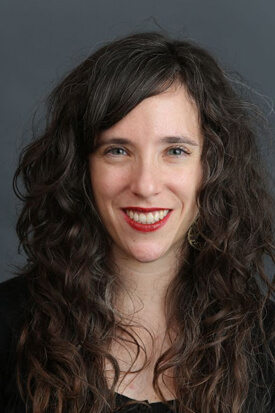Bhavani Lee and Preeti Gupta in Raj Amit Kumar’s “Unfreedom.” | DARK FRAMES
BY GARY M. KRAMER | “Unfreedom,” written and directed by Raj Amit Kumar, tells two vivid and visceral parallel stories about intolerance. In New Delhi, Leela (Preeti Gupta), a lesbian, rejects her father Devraj’s (Adil Hussain) plans for an arranged marriage and runs off with her activist lover, Sakhi (Bhavani Lee). Meanwhile, in New York, Hussain (Bhanu Uday) arrives from Pakistan to seek revenge on Fareed (Victor Banerjee), a liberal Muslim scholar, in the name of religious fundamentalism.
Kumar’s film was banned in India because of its content; it features explicit sex and nudity as well as violent scenes depicting torture and abuse. What audiences there will miss, but can be seen here, is the director’s success in conveying the way characters in disparate situations struggle for political, religious, and sexual freedom.
Raj Amit Kumar juxtaposes sexual intolerance, religious extremism in Indian, Pakistani societies
Gay City News spoke with Kumar about making “Unfreedom.”
GARY M. KRAMER: Why did you choose to tell these two parallel storylines?
RAJ AMIT KUMAR: I think I did that because I wanted to get to something beyond each one of these individual stories. I wanted to make a movie about the questions of identity and violence. We all have many different identities. You may be a son or a father, a lover, a Hindu, a football player. In today’s world, when violence is inflicted on you, you are boxed into an identity — Muslim, homosexual, etc. I created archetypal characters on both sides that are parallel. I wanted to have events happening to each of them to understand questions of religious intolerance, patriarchal society, masculinity, violence, sexuality, and identity.
In my mind, all filmmakers make things that are very personal to them. In all these characters I see pieces of me. You don’t pull something out of thin air or they won’t ring true. You construct a story and characters, but you draw from your personal experience. I’ve seen religious violence firsthand. I have friends in India in the LGBT community who have faced violence and rape.
GMK: What can you say about the controversy you and your film encountered?
RAK: The biggest risk for a filmmaker with a project like this is putting all these resources together. And then the censorship authorities come and ban you. The goal of censorship is to create an environment for independent voices to self-censor. You shut someone off to send the message that you can’t talk about these things. But filmmakers, writers, and artists have to take these risks, and we need to push these boundaries.
Homosexuality is a criminal offense in India. It’s an age-old Victorian law we are carrying on our shoulders for no reason. There’s a huge [queer] community fighting against these laws, and we can’t give rights to the LGBT community. So when you decide to make a film on that subject and the subject of violence in the name of religion — we see what’s happening with ISIS — you are taking a huge risk in many ways. If you don’t take those risks, you give in to these forces that will keep the religious and moral ideology the same.
Director Raj Amit Kumar. |DARK FRAMES
GMK: Can you discuss how homosexuality is viewed in contemporary Indian society?
RAK: We all know from the Supreme Court in India, Section 377 [of the Indian Penal Code] defines homosexuality as illegal. You can put someone who is gay in jail for 10 years. The conversation is: How do you stay out of jail in India? I would assume if you were to poll people in India, especially in the cities, I am sure you will find overwhelming support for the LGBT community. But the common people don’t hold the power to make that change. The current ruling moral consciousness is very religious. It’s a sad affair. Forget same-sex marriage or equal rights. The struggle is how do you get away from a law.
GMK: The depictions of sex and the violence in the film are surprisingly extreme. Was it tough to find actors to do the film?
RAK: It was a challenge to find actors for the film, the actresses especially. Popular actors wanted to do it and it would have been easier if I got them to do it, but they wanted me to change my aesthetic so I had to go with actors who believed in the script the way it was. As a filmmaker you create an experience. When I’m asked, “Why couldn’t you do it another way?” Then it would not be the experience I pictured. It could be told a thousand ways, but each brings a different experience.
GMK: What can you say about the themes of shame and honor in the film? Devraj tells Leela that she is “naked in front of the whole society.”
RAK: It relates to the concept of making a choice and what it meant for me to make a choice to do this film. I am a student of existential philosophy. I believe at all times in life, no matter how tough the situation is, we make a choice or decision that defines us and things that happen around us. Coming around to the questions of shame and honor, it’s a religious culture that is ingrained in that state — and you can see examples of that in America as well. It creates shame for a family that doesn’t fall into the norm of being straight.
For Leela, it is a question of making a choice. And her father has a choice — to make a decision about what he wants to do. Shame and honor play a huge role for patriarchs to act in the way that they act. That concept of humiliation in front of the whole society is a part of that. The reason for that is to give an example in open society, so that nobody does it. That scene is very symbolic in terms of the Indian state and homosexuality. It’s the patriarchy of the nation, not just individual relationship for Leela.
GMK: There is a discussion of what is right and wrong in “Unfreedom.” Do you think your film can help change minds about political, religious, and sexual freedoms?
RAK: Isn’t that what you hope as a filmmaker? If not to change minds then that viewers question why this is. What can be done? How is it happening? Those questions are important. As a filmmaker, you can impact your audience in a way that they go out and question it.
UNFREEDOM | Directed by Raj Amit Kumar | Dark Frames | In English, Hindi with English subtitles | Opens May 29 | AMC Empire, 234 W. 42nd St.; amctheatres.com



































